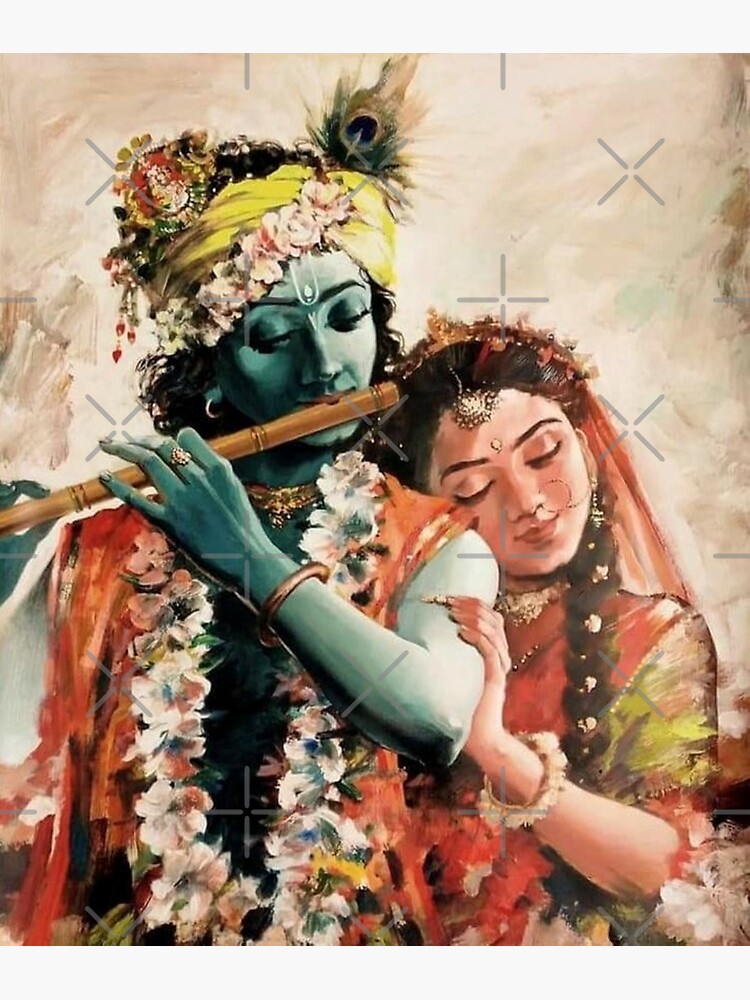.webp)
Saquib Salim
Literature in general and poetry in particular transcends geographical, cultural, religious, and gender boundaries. Literature does not belong to a religion, nation, or language; It encompasses humanity across the epochs. Sample this one from Parveen Shakir:
“Tera rang bhi kaun sa apna, Mohan ka bhi ek hi kaam… Girdhar aakar bhi gaye aur, Man maala hai wahi naam” (Your beauty doesn’t belong to you, Mohan has only one job to love…. Girdhar came and went, your heart is still beating for him)
This Urdu poem uses Radha and Krishna, divine figures to the Hindus, to portray the image of love. The poet, Parveen Shakir, was a Muslim serving as a civil servant in Pakistan. Culturally, it is believed, Pakistan has evolved into a nation where non-Muslim voices have been silenced.
Here, Parveen is using Hindu imagery to depict lovE in her poem. She wrote this poem in the late 1980s or the early 90s after Pakistan had witnessed Zia Ul Haq’s Islamisation drive.

A painting depicting Rasha and Krishna
It is not the lone example; Padveen's poetry is replete with Hindu metaphors which, in general perception should not be associated with Pakistani society.
This poem Salma Krishna depicts the eternal reality that love has no religious identity and Radha could have been a Salma (a Muslim) in love. Parveen writes, “Tu hai Radha apne Krishan ki, Tera koi bhi hota naam (You are Radha of your Krishna no matter what your name is). The poem narrates the love between Radha and Krishna using different names for the divine.
In another poem Ganga Se, Parveen addresses the river goddess Ganges asking her to bestow favours upon her. The poem talks about how Muslims came to India from Arab lands and the Ganges offered them shelter. Muslims thrived in the lap of the Ganges and Parveen wishes she keep showering favours upon them.
Parveen writes, “Jug biite, Dajla se ek bhaTkii hui lehar, Jab tere pavitra charno ko Choone aayi to, Teri mamta ne apni baahe.n phaila dii.n.” (Centuries ago when a stream came from Tigris (a river in Iraq) to touch your feet you opened your arms with motherly love to embrace them).
Elsewhere in the poem she writes how Muslims paid back in reverence, “aur shagun ke tail ne diye ki lau ko uunchaa kiya” (the sacred oil added brilliance to the flame of the lamp). The idea being forwarded is that Muslims added glory to an already great Indian civilization. The language of a devotee to a goddess cannot be missed here.
In the poem Parveen prays to Ganges. She writes, “aur tujhse ab bas ek dua ki taalib huun” (now I ask for only one wish from you). As a Pakistani national, she wishes that the Ganges not breach its banks and submerge her home. This is a n allegory to the India-Pakistan conflict.
In another poem Shaam! Main teri gayya charaaun (Shyam! I will graze your cows) Parveen turns a devotee to Lord Krishna. She writes, “Aaye sapno mai Gokul ke Raja, Dene sakhiyo ko aayi badhaayi” (The king of Gokul has visited in dreams, so I am telling my female friends) Krishan Gopal rasta hi bhoole, Radha pyari to sudh bhool aayi (Krishna Gopala has lost only way to his house, while Radha has lost her senses).
In another poem, Aey jag ke rangrez (O colorist of the World) Parveen draws image of Mathura and gopis, “main panghat par kaise jaaun, bhiige pallu se haatho ko bachaati sakhiyaan” (how to go to the river bank with my drenched clothes which friends are trying to hide).
In another poem Bulava(Invitation) Parveen writes, “maine saari umr, kisi mandir mai qadam nahi rakha, lekin jabse, teri dua mai, mera naam shareek hua hai, tere honTho ki jumbish par, mere andar ki dasi ke ujle tan mai, ghanTiya bajti rehti hai” (In my life, I haven’t stepped inside a temple ever, but since, my name has entered your prayers, in the heart of a devotee inside me, temple bells start ringing with your words). The use of temples, bells, and devotees to bring out the emotions of love in poetry is not something people would associate with a Pakistani Muslim Woman poet.
In another poem Parveen draws imagery of a devotee praying to a Hindu god. “Haatho mai liye diye ki thaal, Us ke qadmo mai jaake baithi, Aayi thi ke aarti utaru” (With a tray of lamps in her hands, she sat at his feet to pray with an aarti). In the same poem, she addresses her lover as devta, a term used for gods among Hindus.
It can be further shown that Parveen’s poetry has elements from Hindu culture especially prevalent in Bihar, a state from where her parents migrated after the partition in 1947. Most of the poems, where Hindu imagery was used, were published after the Zia regime. She avoided using such language at a time when the ruling class was targeting people for subscribing to syncretism of the subcontinent.
ALSO READ: Mountaineer Sunmbul Rahman is one race away from running all global marathons
This poetry also brings out the fact that no matter how hard the governments try, the common people of Pakistan understand the cultural symbols, often termed Hindu, easily. Parveen’s usage of Mohan, Girdhar, Radha, Shyam, Panghat, etc. shows that in her view readers understood the symbols well.
